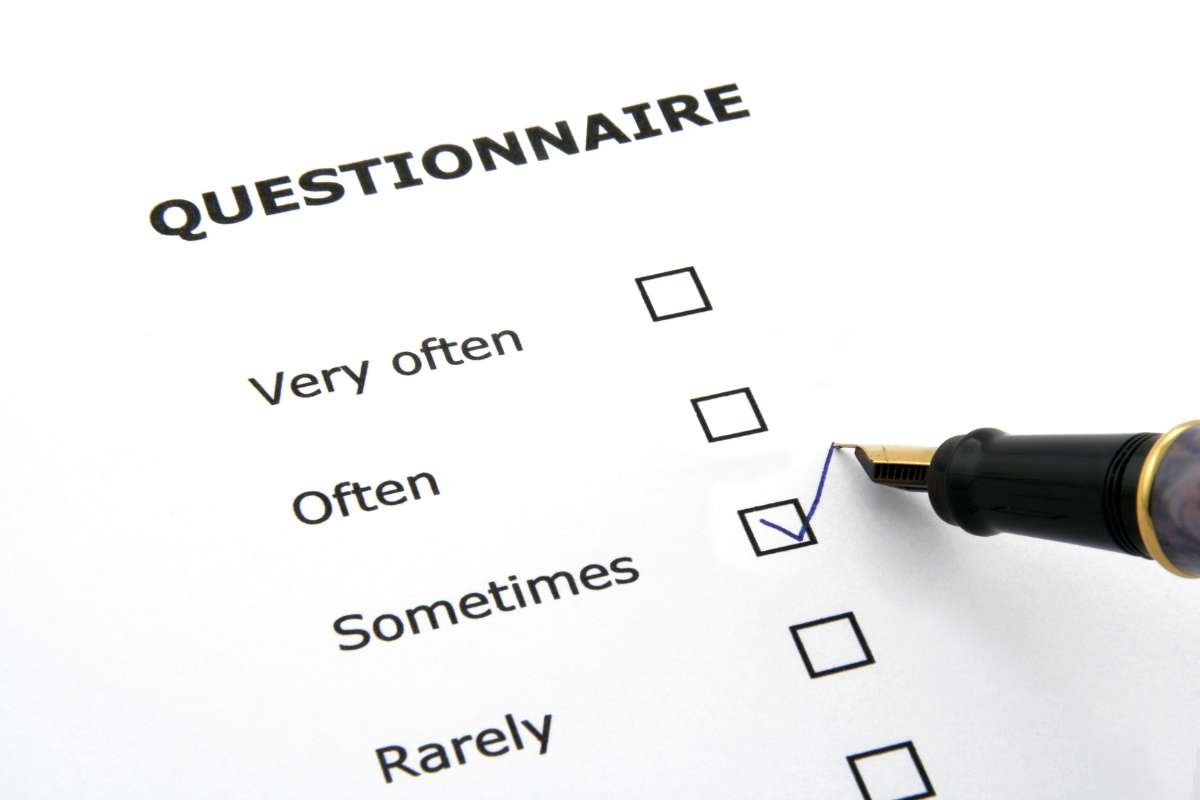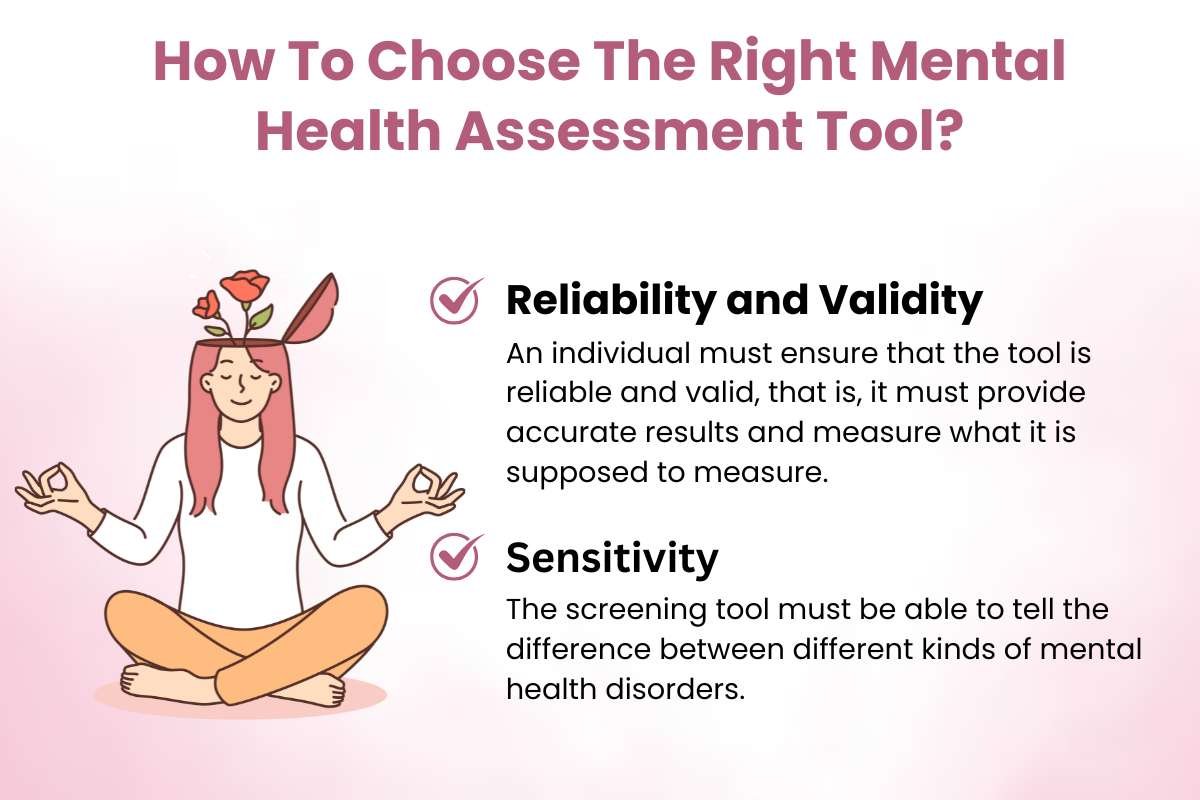Rising to face the feelings of loneliness and embracing the environment of isolation are among the situations that affect an individual. They define one’s state of mind. Even a scenario that appears to be normal has a significant impact on an individual’s life. With each day passing by, every minute feels like a rush hour, with people not finding time for themselves. Be it anxiety, depression, or trauma, individuals must take measures to improve their mental state. With the increase in mental awareness, it is important to identify, understand, and address mental issues.
An important step in finding solace is using mental health assessment tools. These tools are effective and designed to improve individuals’ mental state and well-being. With structured evaluation, these tools help mental health professionals identify the root causes and provide accurate diagnoses based on the individual’s needs. This article will discuss various mental health assessment tools and the best ways to treat mental issues.
Why is Mental Health Assessment Important?
Mental health plays a crucial part in any clinical procedure. Mental health assessment tools (MHA) help identify mental health issues at an early stage and provide an accurate assessment of the symptoms and behaviors related to the issue. These tools also aid in designing the right treatment plans based on an individual’s condition and accurately track their progress and effectiveness of the diagnosis.
Types of Mental Health Assessments
There are various types of mental health assessment tools to diagnose mental health issues. Some of the common types include:
1. Self-Report Questionnaires (SRQs)

These questionnaires help an individual’s evaluate physical, psychological, and behavioral patterns to identify the symptoms of a mental disorder. SRQs can be initiated by the healthcare professional or the individual. Some of the common examples of self-report questionnaires are the Beck Depression Inventory (BDI), Generalized Anxiety Disorder 7 (GAD-7), and Patient Health Questionnaire (PHQ-9). BDIs mainly focus on identifying symptoms of depression along with mood and sleep patterns, while GAD-7 measures the symptoms of anxiety and PHQ-9 measures the severity of depression.
2. Clinical Assessments/Interviews
Clinical assessments are conducted by trained mental healthcare professionals to gain deep insights into an individual’s mental disorder. These assessments usually help individuals who can’t gain an understanding of the disorder through self-report questionnaires. Clinical assessments involve a series of psychological tests, observations, and interviews to determine the patient’s problem and underlying symptoms. Some of the common clinical assessments are the Hamilton Depression Rating Scale (HMDRS) and Mini-Mental State Examination (MMSE).
3. Psychometric Tests
Mental healthcare professionals conduct psychometric tests to assess a patient’s personality, behavioral and cognitive responses, social skills, emotions, or interests. Examples of psychometric tests are the Rorschach test, Thematic Appreciation test, and the Minnesota Multiphasic Personality Inventory (MMPI).
Popular Mental Health Assessment Tools
Here are some common tools used by mental healthcare professionals to assess an individual’s mental health:
1. Depression, Anxiety, and Stress Scale (DASS-21)
The Depression, Anxiety, and Stress Scale (DASS-21) is one of the widely used mental health assessment tools. It is used to assess the main emotional states of depression, anxiety, and stress levels. It is a self-administered questionnaire with 21 items, with 7 questions or scales catered to each condition. The depression scale assesses dysphoria, hopelessness, lack of interest, self-devaluation, and questioning of the purpose of life. The anxiety scale assesses situational anxiety and the possible experiences that might trigger the anxiety. The stress scale assesses nervousness, agitation, and difficulty of relaxation.
2. Generalized Anxiety Disorder (GAD-7)

The GAD-7 is a widely used screening tool designed to assess the severity of anxiety symptoms. It consists of 7 questions that identify the symptoms like nervousness, restlessness, and worry. The resulting score depicts the severity of the individual’s disorder. GAD-7 is useful for quick and effective assessment of anxiety.
3. Insomnia Severity Index
Insomnia is considered to be one of the fatal aftermaths resulting from traumatic experiences. It is often left unrecognized and untreated. Insomnia Severity Index is a screening tool designed to identify the severity of an individual’s insomnia symptoms. The questionnaire consists of 7 questions, evaluating the levels of symptoms like difficulty sleeping, staying awake, and the impact of lack of sleep on a daily schedule. Each question is scored on a scale of 0-4 with the higher score depicting more severe insomnia.
4. Sport Mental Health Assessment Tools 1 (SMHAT-1)
The SMHAT-1 screening tool was designed by The International Olympic Committee to assess the mental health of athletes. It identifies the mental health symptoms like depression, anxiety, sleeplessness, and psychological constraints that might affect the athlete’s performance and well-being. The SMHAT-1 can only be used by sports medicine physicians and other licensed health professionals.
5. CRAFT
Substance abuse has been prevalent among today’s generation, especially in the age group of 15-22 years. Individuals usually look up to substance abuse in retaliation to the traumatic experiences. The CRAFFT is an effective health screening tool designed to identify substance use or substance use disorder among the youth.
How To Choose The Right Mental Health Assessment Tool?

With different types of mental health assessment tools available, one must choose the right ones that help diagnose the disorder.
The following factors must be considered:
1. Reliability and Validity
An individual must ensure that the tool is reliable and valid, that is, it must provide accurate results and measure what it is supposed to measure.
2. Sensitivity
The screening tool must be able to tell the difference between different kinds of mental health disorders.
Conclusion
Mental health assessment tools play an important role in evaluating, identifying, and diagnosing the symptoms rooted in different types of mental health disorders. These tools help healthcare professionals gain a definite understanding of one’s condition to provide effective treatment measures. It is important that individuals choose the right mental health assessment tools and constantly track their progress to ensure their effectiveness.









